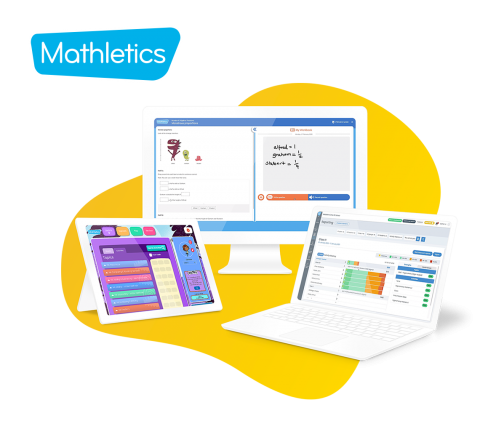Some signs that your kids are having trouble with mathematics are obvious; their results aren’t what they could be, they’re continually asking you to help with homework, or they tell you straight up that they “hate mathematics and just don’t get it!”.
Unfortunately, the obvious signs are the good ones. When you know something is wrong, you can do something about it.
The ones that you miss, however, are going to have the biggest impact later.
Because mathematics learning is cumulative (every new topic build upon what was learned in the previous topic), this can have a hidden and huge impact on your child’s mathematics development.
To avoid playing catch-up later, here are the signs you can look out for now.
Difficulty connecting mathematics fact families
Here’s a quick refresher on mathematics fact families — it’s the relationship between two numbers and their sum after addition, subtraction, multiplication or division.
For example:
The mathematics fact family of 3, 6 and 9 can look like this:
3 + 6 = 9
6 + 3 = 9
9 – 6 = 3
9 – 3 = 6
As your children develop, this gets more complex, but the learning outcome remains the same: understanding the different ways numbers work together.
If you’re noticing that there’s a struggle to connect 3 + 6 and 6 + 3 being the same, or maybe later in their schooling life struggling with seeing the connection between:
12 x 2 + 2 = 26
20 + 6 = 26
There’s a chance your child might not have a deep understanding of mathematics.
Poor time management
This can be a hard one to pick. Kids can be disorganised, get distracted by their phones, have forgotten things, or just not care about whatever it was they were supposed to have done by a certain time.
But a real lack of understanding of how to manage time is a sign there’s a mathematics problem.
Time is (usually) measured in increments, like “we’ve got 5 minutes before we have to leave!” or “you should finish this by 6 o’clock”. Being able to comprehend these increments and map them to meaning is actually a key mathematics skill.
For example, if your child has an hour to finish their homework, they should be able to think or reason like so:
“I have an hour, so that’s 60 minutes. It takes 45 minutes to complete the work and 10 minutes to read over it. If everything goes right, I’ll be able to get this finished.”
If ‘chronically late’ seems to describe your child, then keep an eye on their ability to tell the time from a clock (analogue or digital). If that’s giving them momentary pause, it can be a sign they’re struggling to think mathematically.
Struggling to tie mathematics to the real world
You’re on a family walk and you see two ducks in a pond. Turning to your child, you ask how many ducks there are, and after they answer correctly, ask how many ducks there would be if three more showed up.
Their ability to answer the question is the same as your ability to budget, figure out how much you could save on a sale or calculate interest on a loan: it’s about tying mathematics concepts to the real world.
For now, not knowing how many ducks there would be isn’t a big problem. However, when it comes to later life and making those important, necessary and daily calculations, it can have a dramatic impact on quality of life.
Actively avoiding mathematics
You’d think this wouldn’t be something you can miss — but outside of homework and the occasional grumble that their mathematics lessons are going ‘fine’, you might be missing the small things, like:
- avoiding giving exact change
- reluctance to try using reasoning
- giving vague answers when asked something around numbers, time or length/height/size.
While it could be a case of the ‘couldn’t-be-bothereds’, it might be they’re hesitant to use the mental energy to make the calculations or feel fear or embarrassment in their lack of skill.
How you can help your child
There are three simple things you can do to start with:
Show support — Avoid bad-mouthing mathematics, encourage them to try and praise the effort they put into trying. They’re relying on you to give them that extra boost!
Make it fun — Mathematics can be exciting. There are heaps of free resources like this [resource] which can make the strengthen your kid’s association between fun, enjoyment and reward with mathematics.
Work on it at home — The science is in on this one: working on mathematics at home leads to better results and more mathematically confident kids.
Need help with mathematics in your home?
We’ve got you covered. Get unlimited access to Mathletics for your child and bring the love of learning home.








